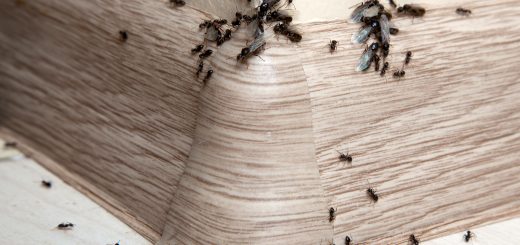The Difference between Asian and German Cockroaches
Asian and German cockroaches are very similar in appearance and this makes it difficult to tell them apart. Aside from visual similarities, these pests must be treated in different ways because their behavior is actually very different from the more common roaches that can infest homes. It is believed that the Asian cockroach was introduced to the United States in central Florida around 1986 from the port in Tampa.
 The size of the German and Asian cockroach is very similar with adults measuring 5/8 inch long and 3/16 inch wide. Both roach species are brown to light tan with stripes prominent on the back of the head. Females carrying eggs do have visual differences however; Asian roaches have wings that extend over the entire ootheca while German roaches have wings that only extend over half that area.
The size of the German and Asian cockroach is very similar with adults measuring 5/8 inch long and 3/16 inch wide. Both roach species are brown to light tan with stripes prominent on the back of the head. Females carrying eggs do have visual differences however; Asian roaches have wings that extend over the entire ootheca while German roaches have wings that only extend over half that area.
The biggest difference between the two is that Asian cockroaches prefer to be outdoors in shady and moist organic matter like grass clippings or leaf piles. The Asian cockroach is not very active during the day, preferring the night time. Another difference is that the German cockroach does not fly well at all but the Asian roach is a very strong flier and can fly over 120 feet.
The Asian cockroach is most likely to come out around dusk and is attracted to bright lights. In fact the most common reason for the Asian roach to invade a home is the light they see coming from doors and windows. Once inside they will eat plant matter, pet food, seeds, or infest litter boxes.
By contrast the German roach prefers to be indoors. They enjoy dark places and flee from light sources and can be active at any time of day. Both species are thought to aggravate allergies and are capable of transmitting pathogens via food or by contaminating food prep areas in the home. Therefore it is important to take care of any infestation quickly and efficiently.
We have several Asian Cockroach treatment options to choose from; give us a call today at (386) 362-3887 if you are experiencing an infestation and to discuss treatment options.










